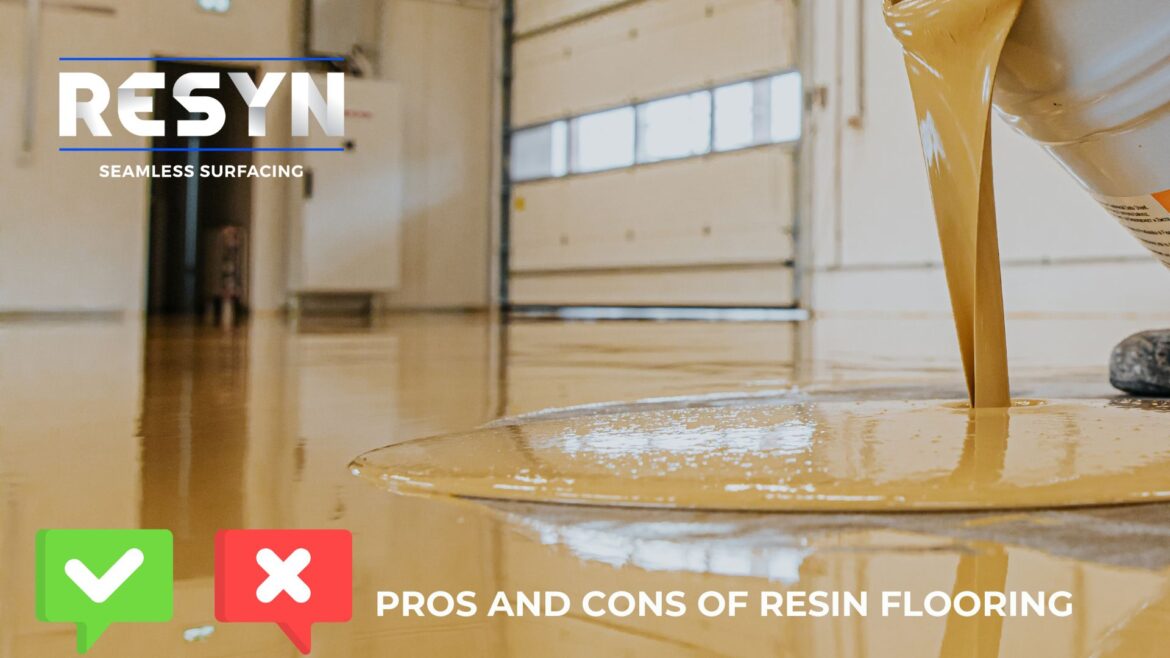Resin flooring is an extremely versatile flooring solution, however, as with any flooring product there are pros and cons.
Within this article, we explore some of the resin flooring pros and cons. It is important to note that there is a range of different resin flooring products and systems available making some more suitable than others depending on the environment/requirements.
Pros:
- Durability and Longevity: Resin floors provide excellent durability and longevity making it ideal for a wide variety of environments.
- Bonding: Resin floors create a secure bond to a wide range of substrates, reducing the risk of delamination.
- Seamless: Resin floors are seamless making them easier to maintain.
- Improved Hygiene: Resin floors offer increased hygiene levels. The secure bond to the substrate coupled with the seamless nature of the floors mean bacteria cannot breed within cracks and seams.
- Flexibility: Resin floors offer exceptional flexibility in terms of aesthetics and surface finish making them suitable to a wide range of areas and environments.
- Physical and chemical resistance: Resin flooring is extremely tolerant to physical and chemical resistance making it ideal for high trafficked / processing environments.
- Slip resistance: Aggregates can be incorporated into the surface finish for unrivalled slip resistance in comparison to vinyl and tiles.
- Speed of installation: On larger areas resin can be installed much quicker than vinyl or tiled finishes.
Cons:
- Expensive: Resin floors can often be more expensive in comparison to more traditional floor finishes when considered on a first-fit cost basis.
- Expensive Repairs: Whilst repairs are greatly reduced with resin, resin repair work can be costly.
- Overcoating: Should the need arise to overcoat your resin floor, it is important to ascertain what flooring products can achieve a bond to the existing resin finish.
- Disposal: Due to the secure bond to substrates, it can be more difficult to remove and replace a resin floor.
- Odour: Certain resins can produce a strong odour, however, this can usually be managed effectively by an experienced resin flooring contractor.
- Colour Stability: Some resin flooring products are not UV stable and can discolour over time.
- Installation: Resin Flooring is a specialised industry and therefore it is important to find an experienced and competent contractor. This can lead to an increase in lead in times when compared to other floor finishes.
When considering the resin flooring pros and cons, you should also consider which version of resin you want to use. There are 3 main types of resin, Epoxy flooring, Polyurethane flooring and MMA / PMMA flooring (MMA is the liquid form and PMMA is the cured state of the resin).
Need further assistance?
When weighing up the pros and cons of resin flooring, it’s important to choose a solution that suits your specific environment and performance needs. As an experienced resin flooring contractor, RESYN can guide you in selecting the most suitable option. Whether you require commercial resin flooring for public or retail spaces, or industrial resin flooring designed to withstand demanding conditions.
To further discuss choosing resin flooring solutions over alternatives for your next project, please contact us on 01778 343670 or use our contact form.
To keep updated on our latest products and services follow us on LinkedIn.

